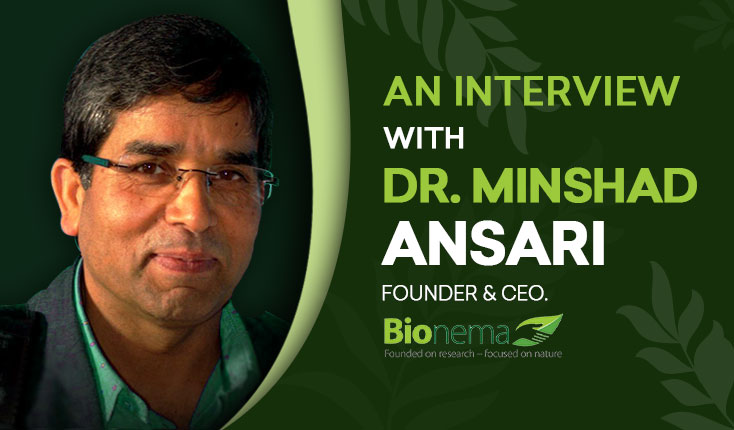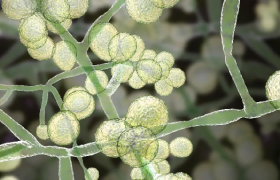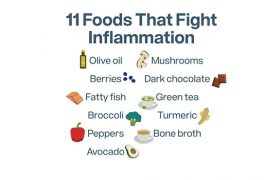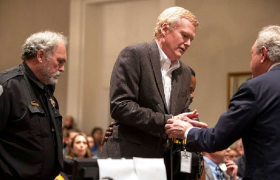Since we last spoke in April 2023 to Dr Minshad Ansari, Founder and CEO of Bionema Group Ltd (see here), there have been a number of developments at Bionema that we were keen to catch up on.
The Worlds Times: Before we talk about Bionema specifically, how do you think the BioAg (biological agriculture) sector as a whole has developed since we last spoke?
Dr Minshad Ansari: There is a famous idiom that a week is a long time in politics, and I think I would like to mimic that by saying that six months has become a long time in the BioAg sector – a lot of change can happen in a short space of time. I think this reflects the fact this this is “our time” and an increased focus on BioAg is making developments in this area pick up speed.
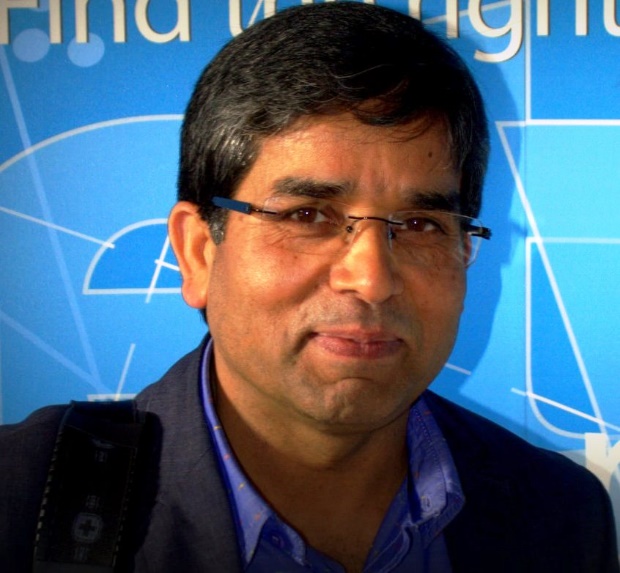
The recent development that I am most excited about is the imminent change to biopesticide regulations in the UK. As a result of a campaign by the World BioProtection Forum (WBF) over the past few months, UK ministers have been debating the rationale and direction of changes to legislation for new biopesticides. If the WBF’s campaign is effective – as looks likely – this this will represent a significant change in a Competent Authority, so it paves the way for long-awaited changes in regions like the EU. After feeling for many years that our industry groups were failing to make progress in this area, this gives me new optimism about the future of worldwide regulations for bioprotection products.
I believe that better regulatory processes will enable more novel biological products to reach the market. Better formulations are crucial to creating successful BioAg products, as farmers will only buy and use products that are easy and cost-effective to use, with a good shelf-life, and persistence and efficacy in the field. We all know of early products that would have given better results with better formulation, and we are continuing to see some remarkable advances in this area. As more of these products reach the market and are approved for use, we should see a speedier uptake of sustainable farming.
The Worlds Times: How is the company’s new strategy – following the sale of your flagship technologies to Syngenta in 2022 – to invent and commercialize innovative formulations and delivery systems progressing?
Dr Minshad Ansari: Our mission is for Bionema to be a world-leading developer of innovative biological formulations that deliver effective and profitable solutions in BioAg.
We are particularly proud of our novel encapsulation technology, IncapsuleX™, which increases efficacy by delivering beneficial microbes in a microcapsule. Achieved by developing unique processes for the microencapsulation of fungal spores or bacteria, it maintains biological stability when stored at ambient temperature; creates micro-environments to retain water for spore germination; enhances adhesion to plant surfaces or insect cuticles; and protects the beneficial microbes for longer persistence. All this results in improved delivery, efficacy and cost reductions.
Over the past few months we have completed a number of trials using this technology, with excellent results. Interestingly, although we initially developed the technology for use with bioprotection/biopesticide agents, the completion of trials with a number of mycorrhizal biofertilizers has led to the recent launch of four new biofertilisers, all using IncapsuleX™ encapsulation technology, demonstrating the broad applications for this technology as well as expanding our product portfolio.
The Worlds Times: You have launched a number of new biofertilisers and biostimulants this year – what prompted you to move into this space?
Dr Minshad Ansari: Although Bionema was founded with a focus on bioprotection/biopesticides, our technologies are suited to other classes of products that satisfy our mission of developing innovative biological formulations. In this particular instance, we were of course acutely aware of the many calls and global initiatives to reduce the use of chemical fertilizers worldwide, and we realized that we had the technologies to help address some of the gaps in this alternative market.
For example, Bionema’s scientists conducted a number of field trials in different parts of the world to evaluate biofertilizers based on Paenibacillus azotofixans, Azospirillum lipoferum, Bradyrhizobium japonicum, and Rhizophagus irregularis – all encapsulated using our novel Incapsulex™ technology platform. These trials demonstrated significantly enhanced growth in several agricultural crops, positive changes in soil organic matter content, pH and agroecological condition, and crop yield improvements. As a result of these trials, in July we launched four biofertilizers under the Rhizosafe™ brand and BioNFix™ range. Crucially, all of these new products are delivered using Incapsulex™ technology so the inoculants are delivered on target, safely and effectively.
Around the same time, we also completed ten years of R&D on a range of biostimulants. These products stimulate natural processes in plants and soil, increasing the uptake and assimilation of nutrients. Bionema’s glasshouse and field trials in the UK, EU, India, Canada and LATAM countries showed that these products may allow farmers to cut their fertilizer use by 50%, while keeping 93% of yields. This work led to the launch of seven new products in August this year, including seaweed extracts, humic and fulvic substances, and other natural nutrients that cover all stages of plant growth, all optimally formulated to provide foliar and root applications to suit a variety of crops.
World attitudes are changing and there are growing demands for reduced chemical use in agriculture. However, if we are to maintain high yields and continue to feed an expanding world population, we need to find other, more sustainable ways to do that. Biostimulants and biofertilizers – when formulated and used correctly – offer effective, sustainable alternatives. They are well positioned to replace chemicals, providing natural solutions that are good for the environment as well as the plants they are intended to nourish and support.
The Worlds Times: I understand you also recently completed a study for a novel botanical slug deterrent – can you share more details about this?
Dr Minshad Ansari: Yes, we saw this as another gap in the market. Following the recent ban (in the UK) of metaldehyde slug pellets in 2022, farmers were left with limited options to manage slugs and snails. Current alternatives include ferric phosphate pellets, which are poisonous to slugs, or a biological molluscicide based on a nematode parasite. Neither of these provides optimal control, as pellets only target surface-active slugs and do not reach the larger pest population living underground, while the nematodes depend on slugs feeding or resting on substrates treated with nematodes. Therefore, there is a need for novel and efficacious products that manage slugs in the field.
Bionema has recently completed its R&D of Slug-EM™ SL. Based on natural tea saponins, which are derived from the tea plant Camellia sinensis, this product is non-toxic, but it has a deterrent effect on the soft body membrane. Saponins also have antifeedant qualities. In trials, Bionema was able to demonstrate Slug-EM™ SL’s efficacy in significantly reducing leaf damage by slugs.
We believe that biological agriculture will be the norm in years to come. Products like Slug-EM™ SL, which can be used as part of integrated pest management, and which do no harm to the environment, pollinators, birds or mammals, will form a vital part of sustainable farming, as they offer non-toxic solutions to fill the gaps left by banned toxic chemicals.
The Worlds Times: How has all this innovation benefited your customers?
Dr Minshad Ansari: Our focus this year has been on better formulations and, as I said before, better formulations are crucial to creating successful BioAg products, because farmers will only buy and use products that are easy and cost-effective to use, with a good shelf-life, and persistence and efficacy in the field. I know that our customers will get optimal efficacy from our products because they have been formulated with those qualities in mind.
Added to this, our customers are supported by an energetic team of experts who can help them get the most out of their biological solutions. Since starting Bionema, I have made sure that the company is committed to not just providing biological products, but to making sure end-users get the best results they can from any products we provide. That starts with choosing the right active ingredient or microbe, and formulation is crucial, but unless we support our customers with advice and guidance, they won’t get the best results. We are committed to providing that support, with a view to giving end-users a positive experience with BioAg, so they are encouraged to make the permanent move away from toxic chemicals.
Further up the value chain, companies seeking help with product development and commercialization benefit from our expertise, and our trial results this year should give them added confidence in our encapsulation technology for a broad range of applications.
The Worlds Times: What is your vision now, for the future of Bionema?
Dr Minshad Ansari: We have a number of other trials ongoing, and we will launch more new products over the rest of 2023 and into 2024, expanding our product portfolio and providing farmers with more sustainable solutions for high-yield BioAg.
Meanwhile, we are in the process of expanding our global reach through the opening of several subsidiaries in North America and Asia. This, along with the ongoing expansion of our portfolio, will drive our own growth and success, and it will help us extend our offering to BioAg end-users all over the world. We are still aiming to complete these goals by the end of 2024, so keep watching and we’ll hopefully have more good news to share soon!
Connect Minshad Ansari on Linkedin
